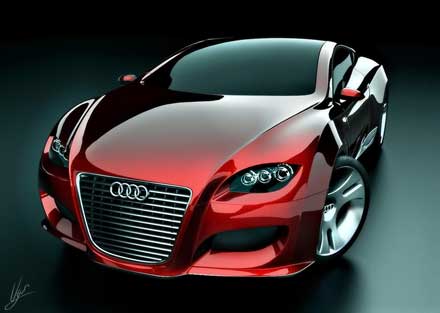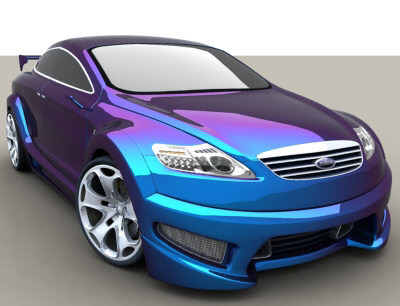 The highly anticipated Nissan GT-R, which will be available for the first time ever in the
The highly anticipated Nissan GT-R, which will be available for the first time ever in the All New 2009 Nissan GT-R Comes To
The all-new 2009 Nissan GT-R, the fifth-generation of the legendary Nissan supercar, makes its North American debut at the 2007 Los Angeles Auto Show in November, following its worldwide debut at the Tokyo Motor Show in October 2007. No longer the unobtainable object of desire on a video game or in the movies, the GT-R will be available on sale for the first time in North American in June 2008.
GT-R is a multi-dimensional performance machine that lives up to the concept of “the ultimate supercar that can be driven by anyone, anytime, anywhere” and achieved a lap time of 7:38 around the famed Nürburgring Nordschleife, one of the fastest times achieved by a production-spec vehicle to date.
Packaging and Driveline Suited for a Supercar
The new Nissan GT-R is built on an exclusive all-new Premium Midship platform. This new platform enables the use of a world’s first independent rear transaxle ATTESA E-TS all-wheel drive system, which optimizes weight distribution and handling capability. This layout places the transmission, transfer case and final drive at the rear of the vehicle, without the use of traditional torque tubes, allowing the suspension to operate independently and optimizing tire grip at each corner.
Under the hood, the Nissan GT-R features an all-new hand-built VR series 3.8-liter twin turbo V6 producing 480 horsepower @ 6,400 rpm and 430 lb-ft of torque @ 3,200 to 5,200 rpm, while meeting ultra-low emission vehicle (ULEV) standards.
The all-new VR38 engine, named VR38DETT, features innovative plasma-sprayed bores replacing cast iron liners for reduced friction, lighter weight, enhanced cooling, power output and fuel efficiency; a symmetrical independent intake and exhaust manifold system featuring twin high-performance IHI turbochargers; a secondary air management system for improved cold-start emissions performance; a thermostatically controlled oil-cooling system; an oil scavenger pump to maintain oil flowing to the turbochargers; and a lateral wet and dry sump oiling system. All GT-R engines are hand-built in a clean room environment at the Nissan Yokohama engine plant.
The VR38DETT is backed by an all-new, paddle-shifted GR6 sequential 6-speed dual clutch rear transaxle, which can be driver selected to shift at race car-like speeds . The sequential-shifting transaxle features separate wet clutches for the odd (1,3,5) and even (2,4,6) gears and pre-selects the next highest and next lowest gear for immediate shifts. It also features Hill Start Assist for easy starts on uphill inclines.
Contributing to overall vehicle balance and low center of gravity, the unique offset input and reaction shaft design of the GR6 rear transaxle enables a shorter design profile versus a typical manual transmission, moving the concentration of powertrain weight lower in the vehicle.
Putting the power to the ground is an electronically-controlled ATTESA E-TS all-wheel-drive system specifically developed for GT-R. The rear drive-biased system can vary torque split from 0:100 to 50:50 depending on speed, lateral acceleration, steering angles, tire slip, road surface and yaw rate. Of note is a special GT-R-specific yaw-rate feedback control, which measures the differences between the target yaw rate calculated from steering angle and actual yaw rate detected by the yaw-rate sensor and G sensor to adjust torque bias.
Handling duties are managed by a sophisticated 4-wheel independent suspension system mounted to high-precision six-point front and rear subframes.
A special Bilstein DampTronic driver adjustable shock absorber system utilizes multiple vehicle information systems to provide appropriate damping forces and high level of control for a variety of driving situations. The DampTronic system features three driver selectable settings -
Stopping power is provided by Brembo mono block six-piston front and four-piston rear calipers with large 15-inch Brembo full-floating cross-drilled two-piece rotors and low-steel high-stiffness brake pads which minimize fade and provide intense stopping performance. The calipers utilize race car-style radial mounting to minimize caliper flex during extreme braking.
GT-R-specific lightweight forged 20-inch wheels, with special knurling to assist with securing the tires during hard acceleration or braking, are shod with nitrogen-filled Bridgestone high-performance summer run-flat tires specifically designed for the GT-R, sized 255/40ZRF20 front and 285/35ZRF20 rear. High-performance Dunlop all-season tires are also available.
GT-R’s Signature Functional Design – High Performance Aerodynamics and Style
The Nissan GT-R’s styling follows the “function over form” theory. Every styling aspect, from the overall design to the smallest details, is created to maximize the vehicle’s driving experience – as well as suggest GT-R’s “supercar” level of performance. Utilizing advanced aerodynamics, GT-R’s aggressive styling evokes the lines of a well-trained athlete, combining strong character lines with smooth and solid areas.
The all-new GT-R’s hybrid body construction is created with a combination of steel, carbon fiber and die-cast aluminum, providing a unique combination of stiffness, precision and lightness. The body features a low coefficient of drag of 0.27 while achieving high front and rear downforce, providing stability and handling performance in a wide range of driving conditions.
GT-R’s front fenders express power and stability, while the “aero-blades” on the fenders’ leading edges provide optimum airflow around the tires and along the body. The vents in the fenders’ trailing edges assists in providing front downforce and optimizing side air flow. The aggressive front end, with a large hood budge and single central air intake, provides a sophisticated style as well as undisturbed air flow for power and cooling.
New “super wide beam” headlights feature three additional sub-reflectors (compared to conventional lights) to give a wide illumination spread.
The Nissan GT-R’s four-passenger cabin features a sloping “aero blade canopy” roofline and curved C-pillar “sword edge,” which expresses the distinctive GT-R identity, as well as facilitating air flow around the rear of the vehicle. The signature rear view of the GT-R is provided by its hallmark four-ring taillights, while air flow above and below the vehicle is managed by the functional rear carbon fiber underbody diffuser, rear spoiler and large, integrated quad exhaust tips.
GT-R’s advanced technology is present even in the vehicle’s paint, which utilizes a durable anti-chip paint and “double clear coat” process. A special seven-coat silver paint color is available, which is baked five times and is also hand-polished by craftsman.
An Interior Suitable for Daily Driving or Supercar Duties
Key to the Nissan GT-R’s usability as a both daily driver and a high-performance machine is its interior, which is designed to balance functionality and comfort. It provides comfortable four-passenger seating and trunk capacity of two golf bags or suitcases.
Sculpted performance bucket seats give the driver and passenger a comfortable driving experience, and soft pads are utilized on the dash in front of the passenger and both doors to give an extra level of comfort. The rear transaxle layout of GT-R, with a flat floor and narrow center tunnel, allows GT-R to have an optimal driving position.
A cockpit-style instrument panel surrounds the driver, with all meters and multi-function meter at a uniform height to minimize the driver’s head movement. A large center-mounted tachometer, with gear display on its upper right, as well as the easy-to-read graphics of the display, gives the driver instant detailed information, essential for the performance nature of the GT-R.
Functional style is also evident in GT-R’s interior – each meter features a dial plate design that evokes the idea of engaged gears, as well as a three-dimensional metal-like ring, suggesting the multi-dimensional performance of GT-R. A large, metallic-framed center console features an ergonomically designed shift lever and a red “engine start” button.
The centerpiece of the instrument panel is a video game-inspired multi-function display. Eleven pages of information are available on this system, including mechanical and driving information, acceleration, brake pedal pressure, steering angle and a recording function with playback. Additional on-screen information includes a Navigation system, enhanced entertainment system with a Music Box Hard Drive and a Bluetooth® Hands-free Phone System.
An available s pecially-designed 11-speaker Bose® audio system features two forward-facing woofers in the rear center armrest area. Rigid aluminum die cast panel-mounting of all speakers allowed Bose engineers to perfect the acoustical performance of the GT-R sound system.
High-Performance Safety Technologies
The Nissan GT-R offers a long list of safety features, including, for enhanced visibility inside and out of the vehicle, high-mounted LED stoplights, bright LED rear combination taillights, “super wide beam” headlights, heated door mirrors and flat-blade windshield wipers.
Standard safety equipment includes a Nissan Advanced Air Bag System for driver and front passenger, front seat belts with pretensioner and load limiters and tension reducers, and three-point ELR/ALR rear seat belts. Driver and front passenger SRS Side Air Bag System and SRS Curtain Air Bag System are also available.











